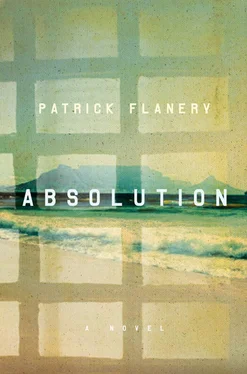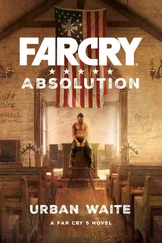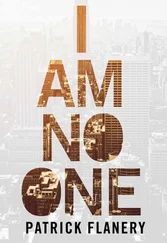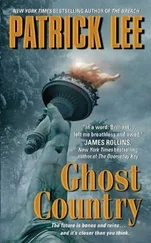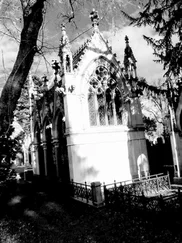‘And the wig? Was the house invasion real?’
‘It was real. The wig was stolen, and recovered more or less as the book suggests. But it remains, like so many crimes in our country, unsolved.’
‘But—’
‘No, Samuel. Really. I’ve said as much as I dare.’
One half of Clare’s mouth turns up in a smile and she looks like she might want to say more, but it’s clear that I can push her no further. Just then Marie returns having taken much longer than necessary to buy the Australian writer’s book. Clare tells her we’ve almost finished, explaining to me that she has a dinner appointment with the Festival organizers.
‘I have a great many commitments over these few days. More and more people are scavenging for a shred of my time. The university wished for me to spend a month with them and did what such institutions are capable of doing, dangling bewitching amounts of money in an attempt to convince me I should be resident on campus and give a whole series of readings and lectures. “Really, I do not need the money,” I told the very nice woman who approached me. “But think of your children, and your estate,” she said. “One of my children has long been missing and presumed dead,” I told her, “and the other is quite rich.” “Then give it all to a deserving charity and think what good it would do,” she said. “I have a better idea ,” I suggested. “Why don’t you give it directly to a deserving charity of my choice and we can leave it at that?” “I’m afraid it doesn’t work that way,” said the woman, explaining in her terribly nice way that it was money in payment for services, as though I were some kind of working woman and the university the wealthiest of possible tricks. That is unkind of me. In fact I think nothing of the sort, but it is not quite my idea of what a writer’s life is supposed to be, all that punditry, puffery, public intellectual posturing and — I’ll avoid the most obvious word since we both know what it is. In the end I told her no and begged her give the money to one of a list of charities I thought worthy of support. She said she would do what she could, but suspected it would not be possible. Would I at least give a lecture? she asked. I submitted to that. So I must also come back here next week. It is exhausting even thinking about it. You will have to forgive me, Samuel, if I must say goodbye for now. Others make demands on me and I lack the strength to fight off all of them.’
Though she looks sympathetic I can’t help wondering if it’s a performance of sympathy and she’s just a very good actress, playing the role the situation demands. I gather my recorder and notebook and stuff them into my satchel. Before I leave the hotel room, she stops me, a hand on my arm.
‘This you may take away,’ she says, passing me a thick envelope that she’s pulled from the drawer of an end table, her hands shaking, lower lip finding its way in between her teeth. ‘It is for you. I mean, you may keep it. It’s something I need you to read. Wait until you get back to wherever you’re staying. Do not read it now. Do not read it in front of me. Please do not read it in the lobby downstairs and come racing back. Read it and think. I shall wait to hear from you.’
I can’t help being intrigued, but I promise to wait. I walk back into town and then turn south, towards the river, stopping at a café on Ryneveld when I can’t contain my curiosity any longer. Inside the envelope there’s a letter and a thin typescript.
Dear Samuel ,
There are questions you came to Cape Town to ask that you did not ask. There are questions I should like to ask you as well. But in the absence of either of us having the courage to ask the questions for which we most want answers — the answers without which the entire process seems to me pointless — I offer you the enclosed text. I thought I knew how to frame the questions, but I did not. I also thought I should find the courage to ask you, and I did not, still have not. The text I offer is for you, not for the book. It is for you and for my daughter and for me, not for publication. The only way I know how to ask the questions is to write around them, to interpose my own imagination into the events as parties necessarily invested with their own versions of history have related them to me. What I want from you, if you feel able to offer it, is an indication of where I have gone wrong in this imagining. I am asking in the only way I know how, for you to tell me what you know .
Love ,
Clare
At first I am simply confused, and unsure what it is I’m reading.
You come out, across the plateau, running close to the ground, find the hole in the fence you cut on entry, scamper down to the road, peel out of the black jacket, the black slacks, shorts and T-shirt underneath; you are a backpacker, a student, a young woman hitchhiking, a tourist, perhaps with a fake accent. Soon it will be dawn. But no, I fear this isn’t right. Perhaps it wasn’t there, not that town — not the one on the plateau, but the one further along the coast at the base of the mountains …
She must have made a mistake. She never would have intended for me to see this. It is far too personal. And then I turn a page and find myself in the text and begin to feel dizzy. But the versions of me and of Bernard that I find in her words are people I don’t recognize, and the events she recounts are not the events as they occurred. She knows and she doesn’t know. As dinnertime approaches, and I’m due to meet Sarah back at our hotel, I come to the end:
You wanted him to throw out his arms and cling to you, cry out not to be abandoned, force you into doing what you could not.
But he had nothing to say.
Of course I remembered him at once. Not just here. I knew him immediately in Amsterdam. And finding him suddenly before me, it was like being faced with my own assassin. I wondered if he had come to exact his pound of flesh. But he has only ever been charming. What does he want? I ask. Why can he not say what he has come to say?
On the final page, in the long lines of her shaky hand, is a brief postscript:
Come back tomorrow afternoon and say what you failed to say in Cape Town. Let us say what we both know is between us. C.
Though still shaken by Mark’s abrupt dismissal of her confession, the next morning Clare made an attempt to return to her usual routine. She woke early and swam before her son was up. Adam arrived as she was drying off and she buzzed him in through the front gate. After a long period of negotiation and renegotiation, she and Adam had settled into a routine that suited Clare and that she hoped also suited him. He had accepted her small patch of exotic plants, the vegetables and herbs and flowers, while she had accepted that as far as growing conditions and soil amendments and the indigenous species were concerned, Adam would have to be treated as the authority, and that beyond the imposition of her kitchen parterre, the structure of the garden should remain unchanged, at least for the present.
With Adam’s agreement, Clare ordered two hundred Queen of the Night bulbs, which she had decided should go across the pale front of the house in an unbroken mass, providing a sombre and elegant ribbon of contrast in the spring. ‘We will have to replant them every autumn,’ she told him. ‘Queen of the Night is a fussy, unpredictable tulip, not very robust. If you can make them bloom from year to year, I should be impressed. Would your brother approve of them, do you think?’
‘He did not like tulips so much,’ Adam said, ‘because he thought they are the Dutchman’s flower. But these black tulips, I think he never saw these ones. I think they will make a nice memory.’
Читать дальше
